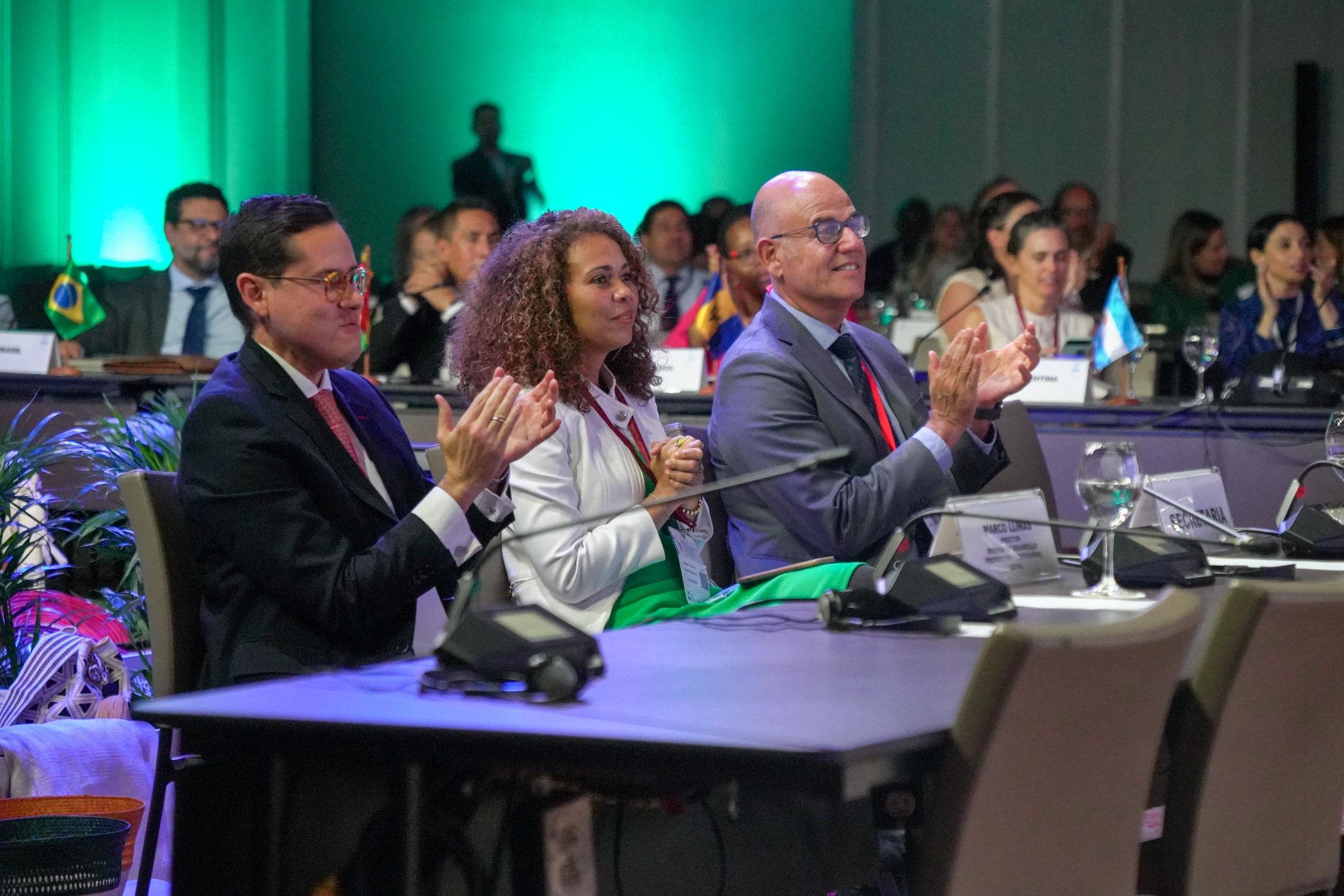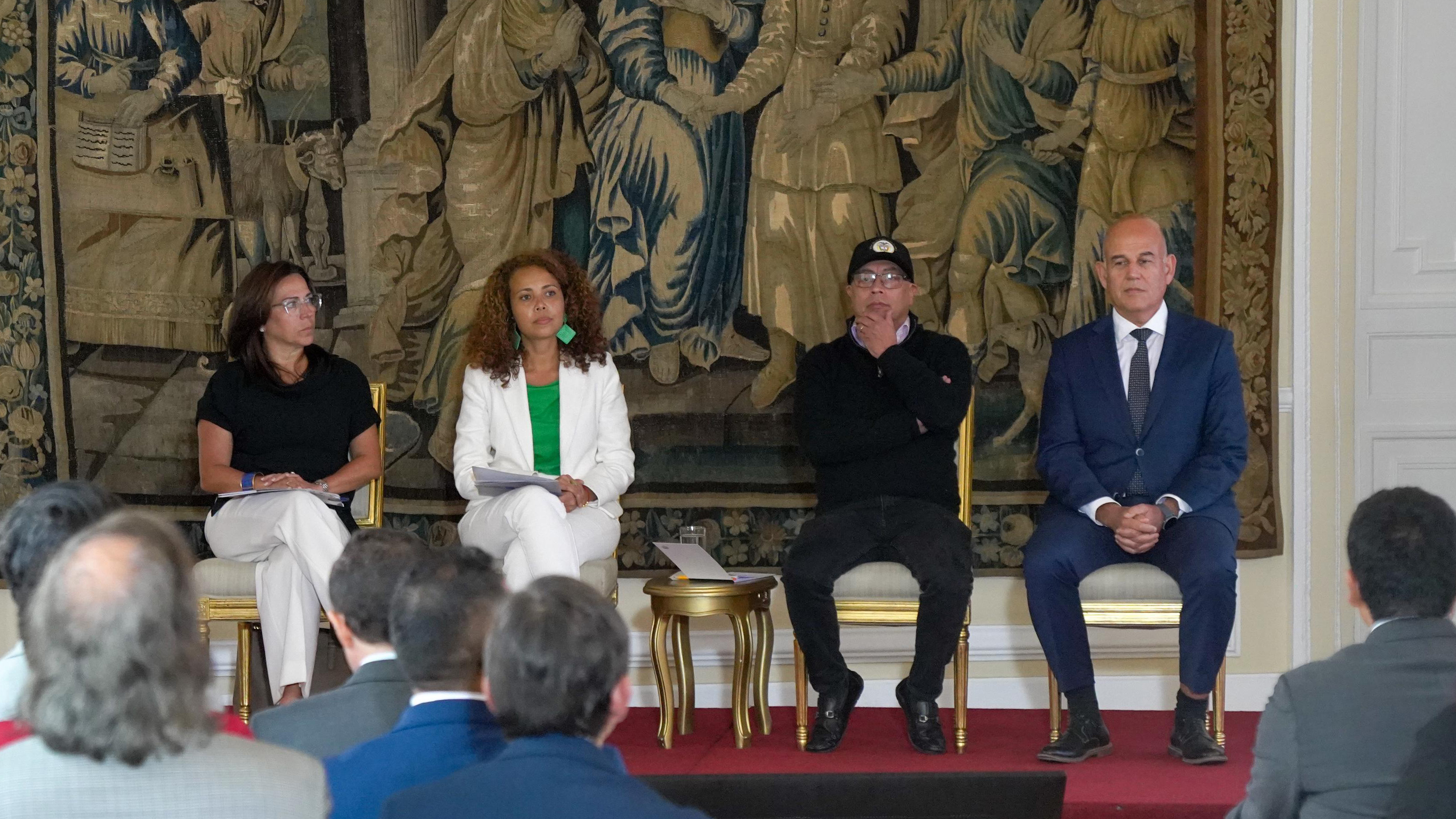Latin American and Caribbean Countries Agreed on Regional Science, Technology and Innovation Agenda with a Focus on Productivity
Work area(s)
Colombia took over as Chair of the Conference on Science, Innovation and ICTs, the fourth meeting of which concluded this Friday in Bogotá.

Delegates from the Latin American and Caribbean countries participating in the Fourth Meeting of the Conference on Science, Innovation and Information and Communications Technologies of the Economic Commission for Latin America and the Caribbean (ECLAC) agreed on Friday, April 5, 2024 upon a regional cooperation agenda for the next two years that seeks, among other things, to firmly address the challenge of the region’s productivity.
The event – organized in conjunction with the Ministry of Science, Technology and Innovation of Colombia – brought together senior authorities from 22 of ECLAC’s Member States (Argentina, Barbados, Bolivia, Brazil, Chile, Colombia, Costa Rica, Cuba, the Dominican Republic, El Salvador, Guatemala, Guyana, Mexico, Nicaragua, Paraguay, Peru, Portugal, Saint Vincent and the Grenadines, Trinidad and Tobago, Türkiye, Uruguay and Venezuela) and more than 300 representatives of international organizations, the scientific community, academia, the private sector and civil society.
According to the Conference’s resolution, the delegates approved the 2024-2025 lines of work presented in the document Science, technology and innovation for sustainable and inclusive productive development: Guidelines for 2024-2025 to define a biennial programme of regional and international cooperation activities in support of science, technology and innovation policies.
These lines of work are: 1) science, technology and innovation (STI) instruments for sustainable and inclusive productive development; ii) governance of science, technology and innovation; iii) science, technology and innovation with a territorial approach; and iv) strategic sectoral and technological agendas.
In addition, it was decided that working groups for each of these approved lines of action should be established.
Participating in the closing session of the Conference – the main theme of which was “science, technology and innovation for productive development” – were Luis F. Yáñez, Secretary of ECLAC, and Yesenia Olaya, Minister of Science, Technology and Innovation of Colombia.
“We agree that science, technology and innovation policies are connected to other development policies, both because of their impact in increasing productivity as well as their contribution to creating new sectors and to the needed recuperation of growth in the region,” said Luis F. Yáñez, highlighting the resolution approved in Colombia, which he said “paves the way for collaborative and multistakeholder work.”
“We are pleased to see how here, under Colombia’s leadership, a path is being cleared for the region to work vigorously on these issues. We reiterate ECLAC’s availability to accompany this process,” said Yáñez, speaking on behalf of ECLAC’s Executive Secretary, José Manuel Salazar-Xirinachs.
Minister Yesenia Olaya pointed up the debates held in Bogotá on topics such as investment, governance, territorial approaches and productive development for sciences, technology and innovation in the region, along with the results obtained over these two days of work. “From the standpoint of Colombia, I want to reaffirm our commitment to promoting cooperation on STI, with an inclusive, differential and territorial approach that would put our countries’ most vulnerable and marginalized communities at the center,” she stated.
The Conference’s new Executive Committee is made up of Colombia as Chair and Argentina, Brazil, Costa Rica, Mexico, Uruguay and Venezuela as Vice Chairs. Brazil’s offer to host the Conference’s Fifth Meeting was also approved.
Related content

Latin America and the Caribbean Must Direct Science, Technology and Innovation Efforts Towards Addressing its Productivity Challenge
Colombian President Gustavo Petro led the inauguration in Bogotá of the Fourth Meeting of the ECLAC Conference on Science, Innovation and Information and Communications Technologies.
Related event
Type
Country(ies)
-
Colombia
- Latin America and the Caribbean
Contact
Public Information Unit
- prensa@cepal.org
- (56 2) 2210 2040